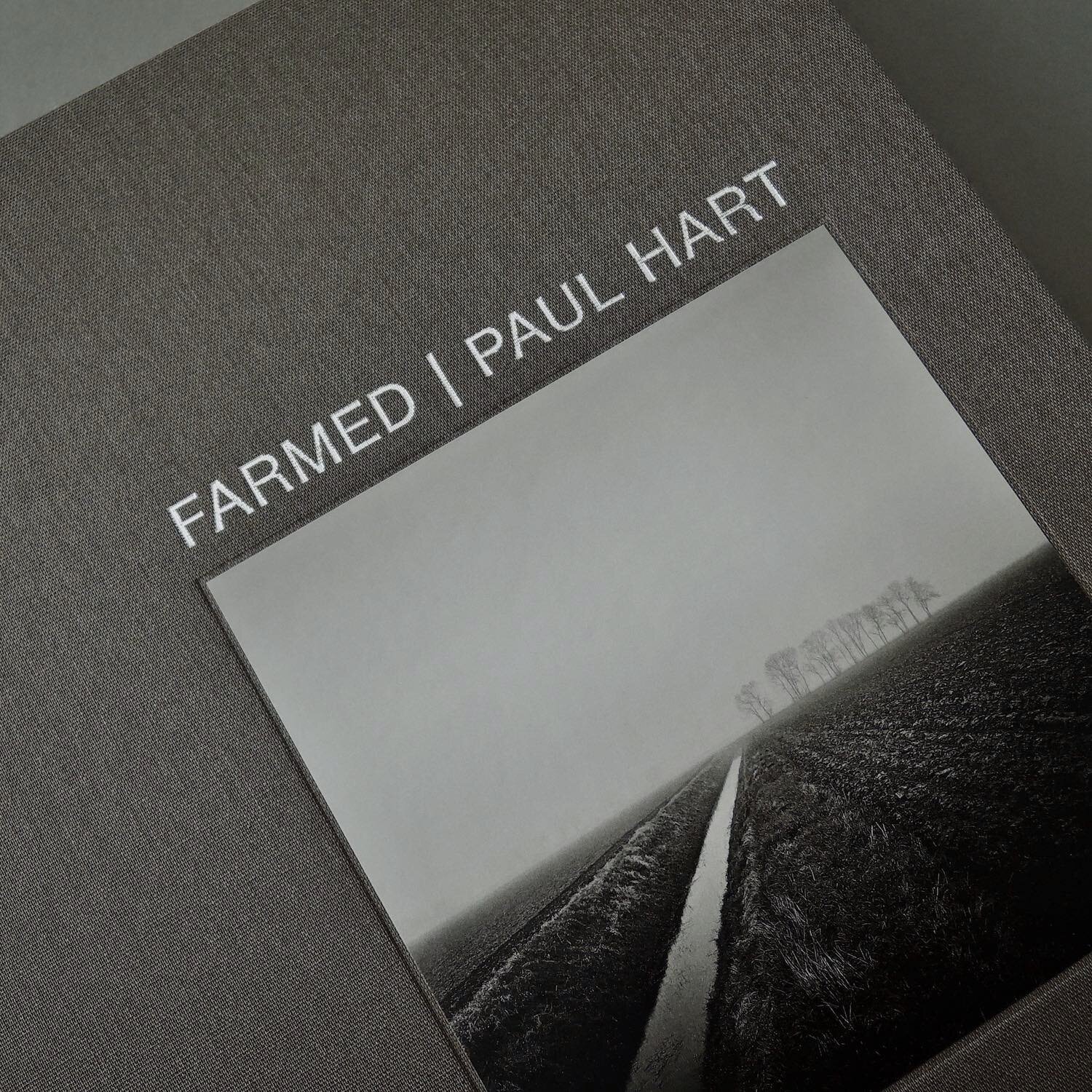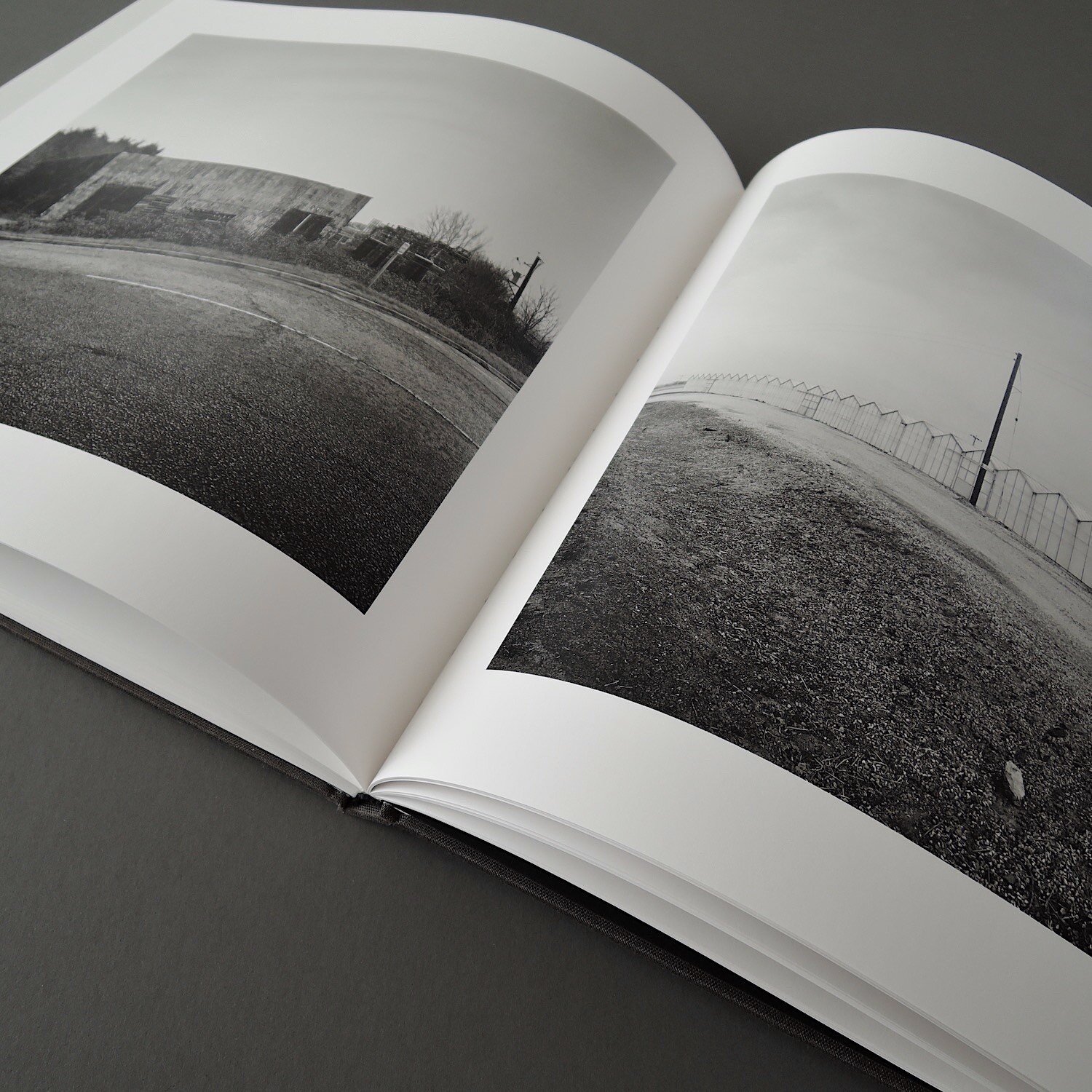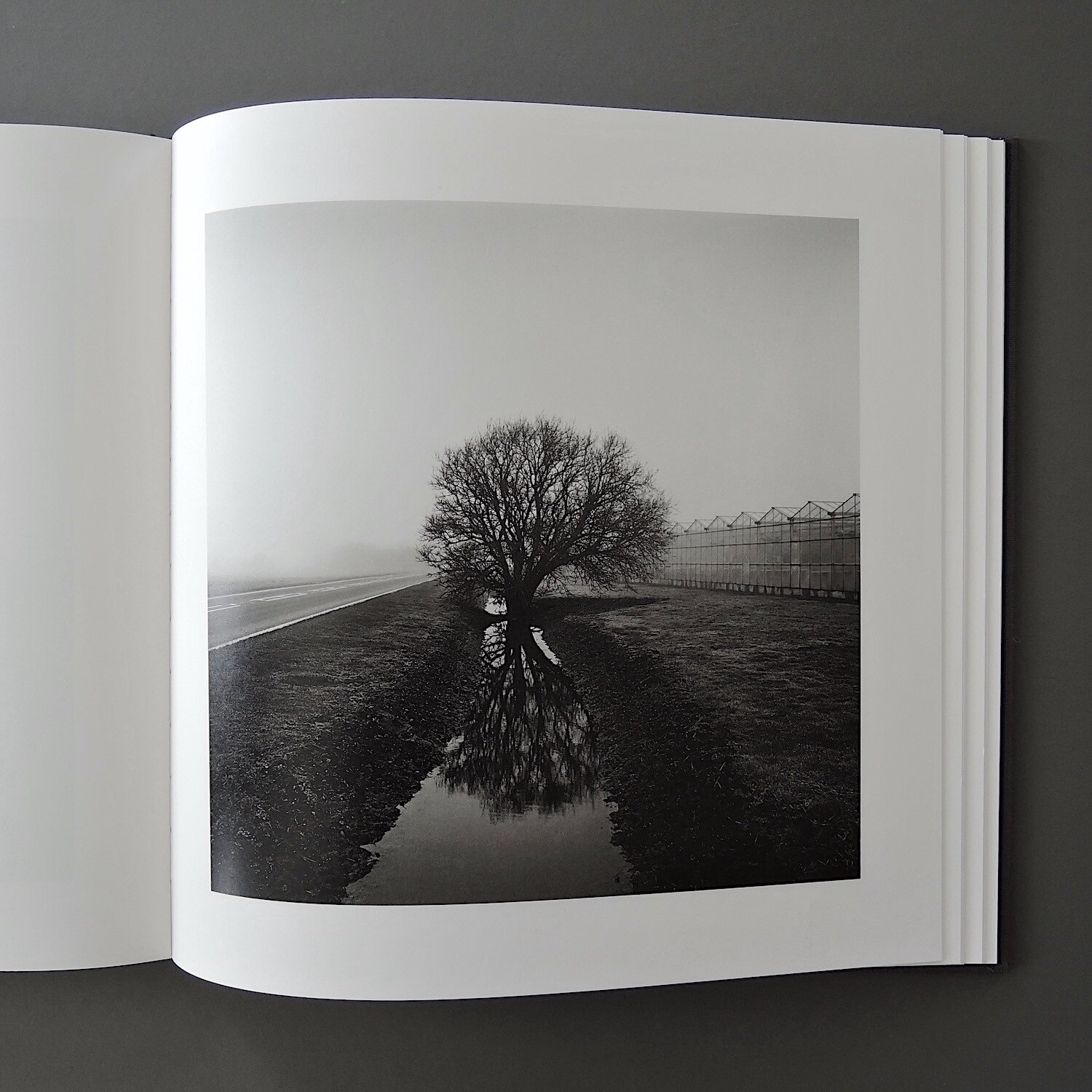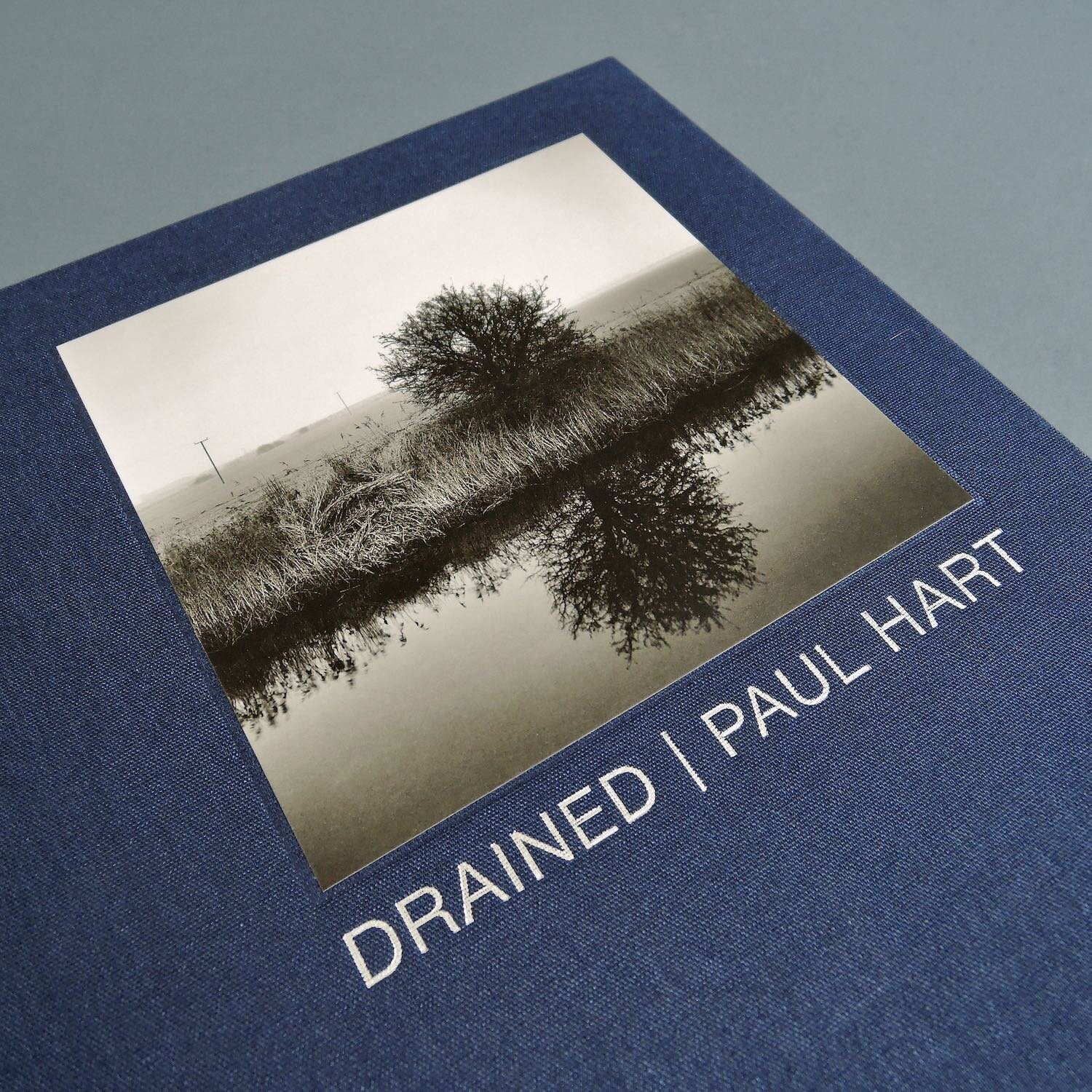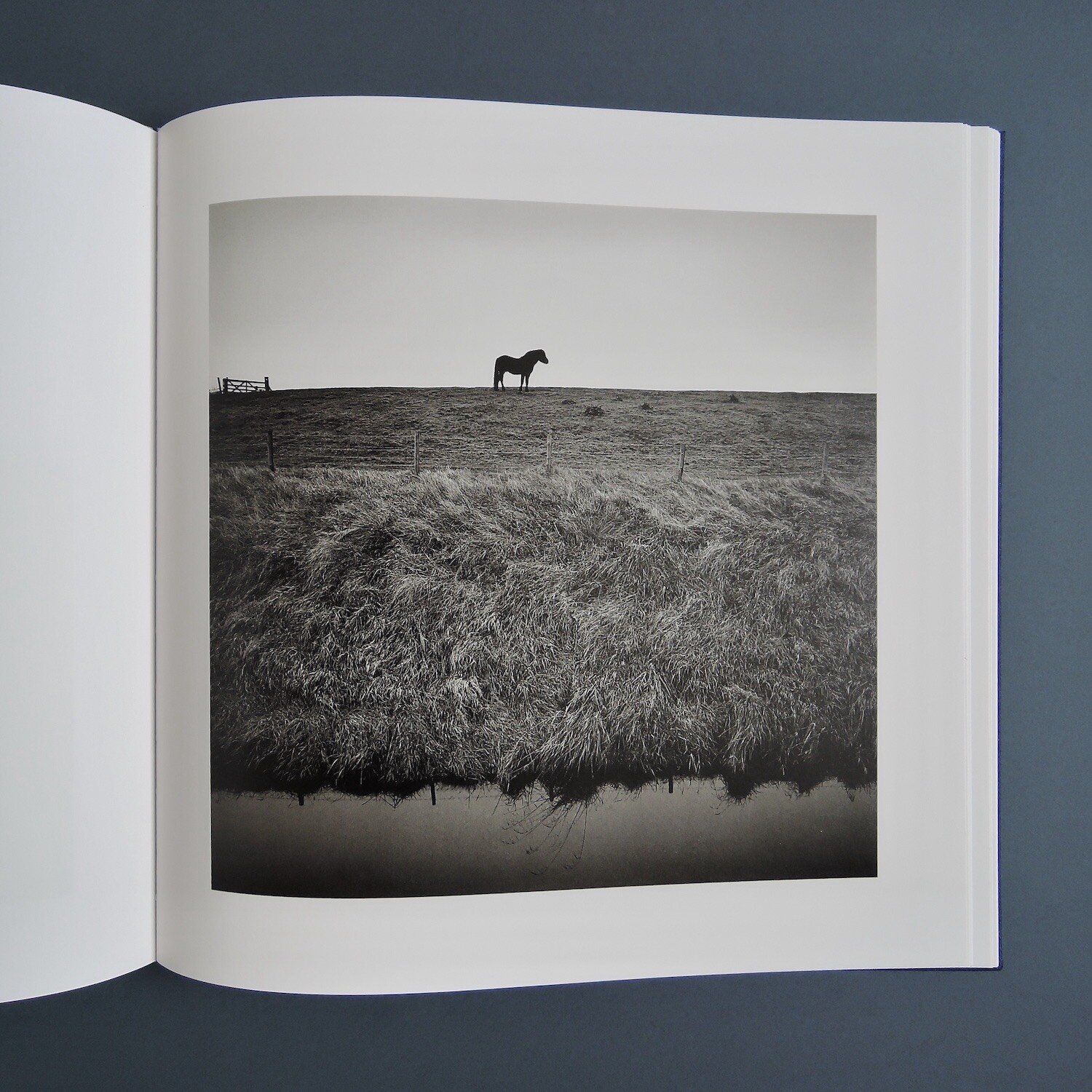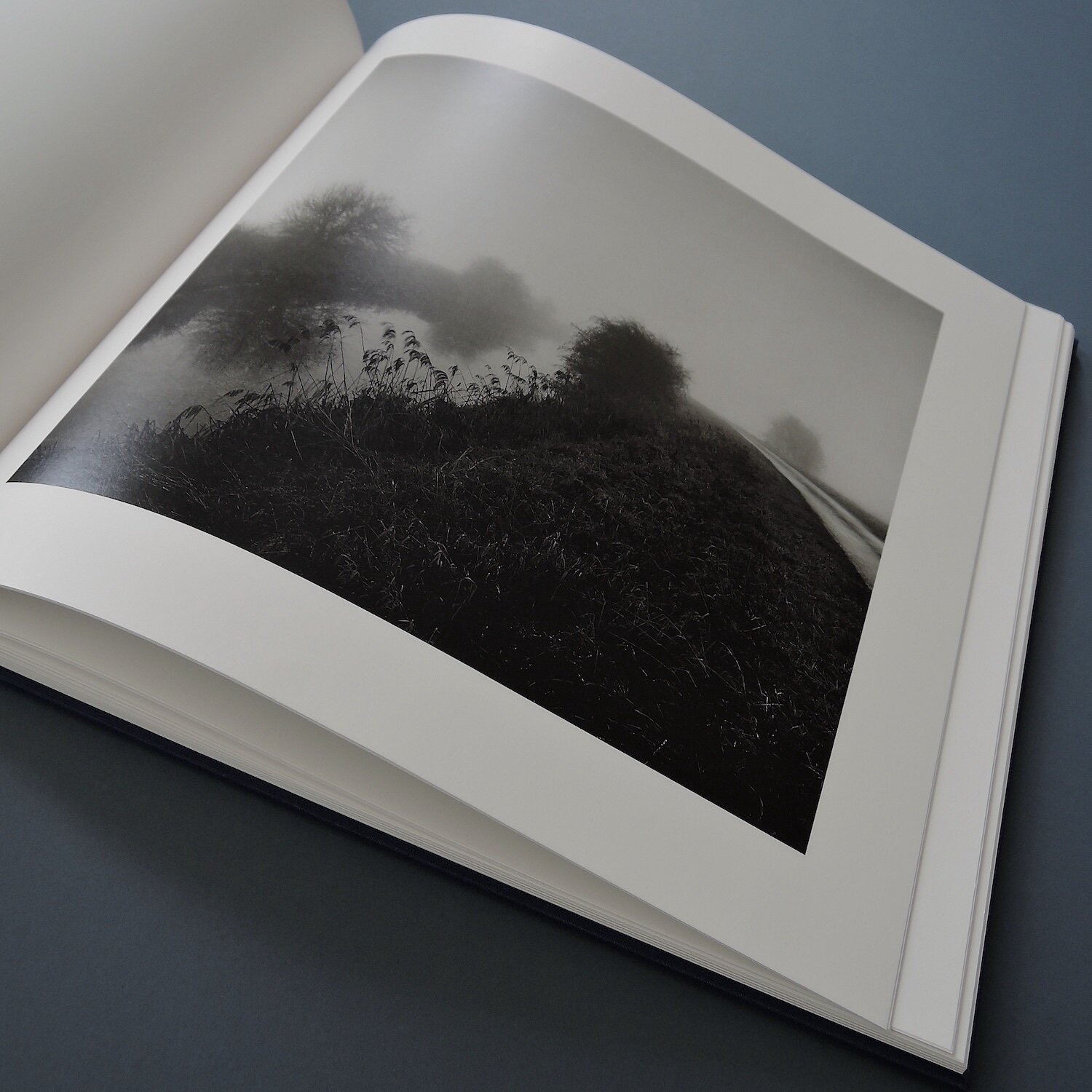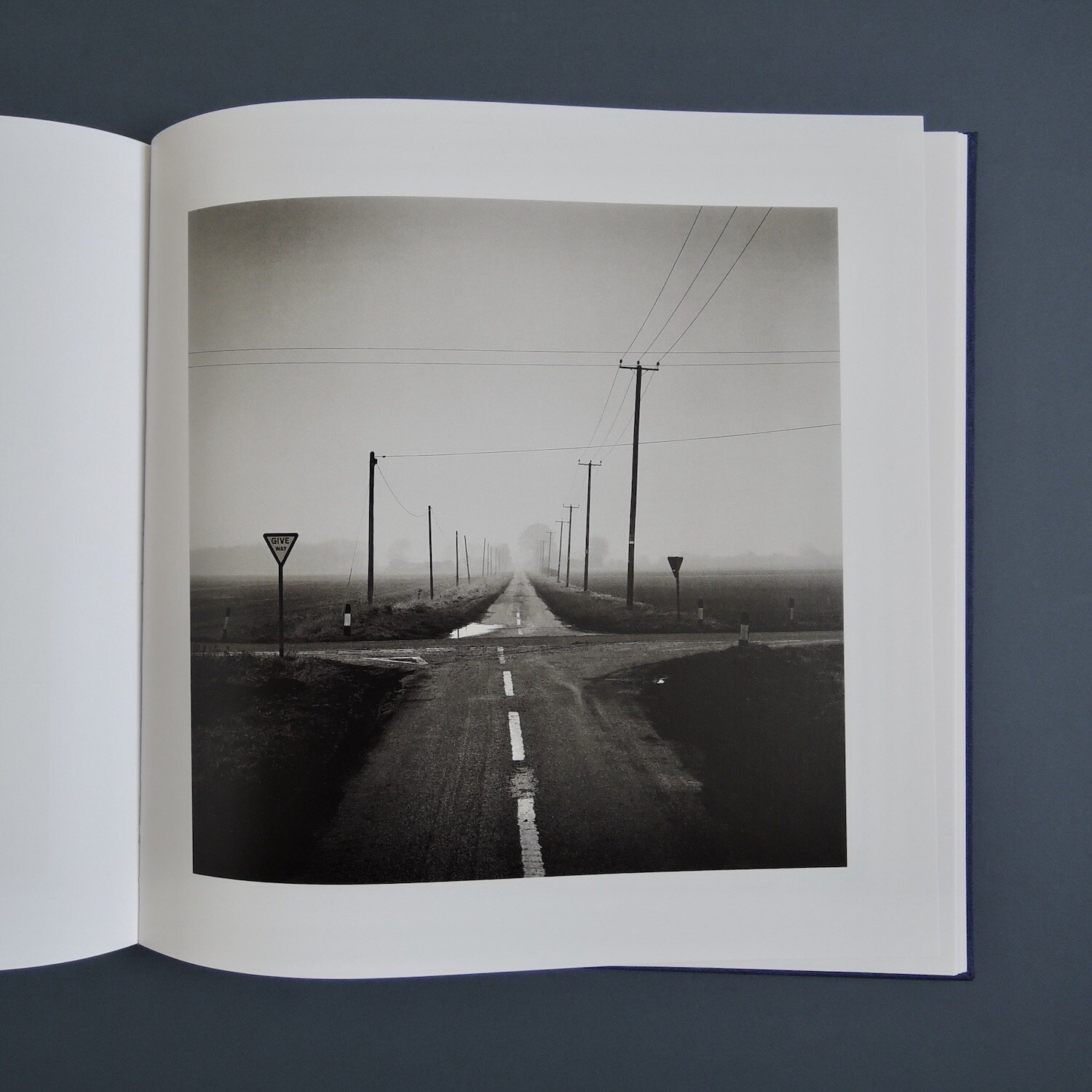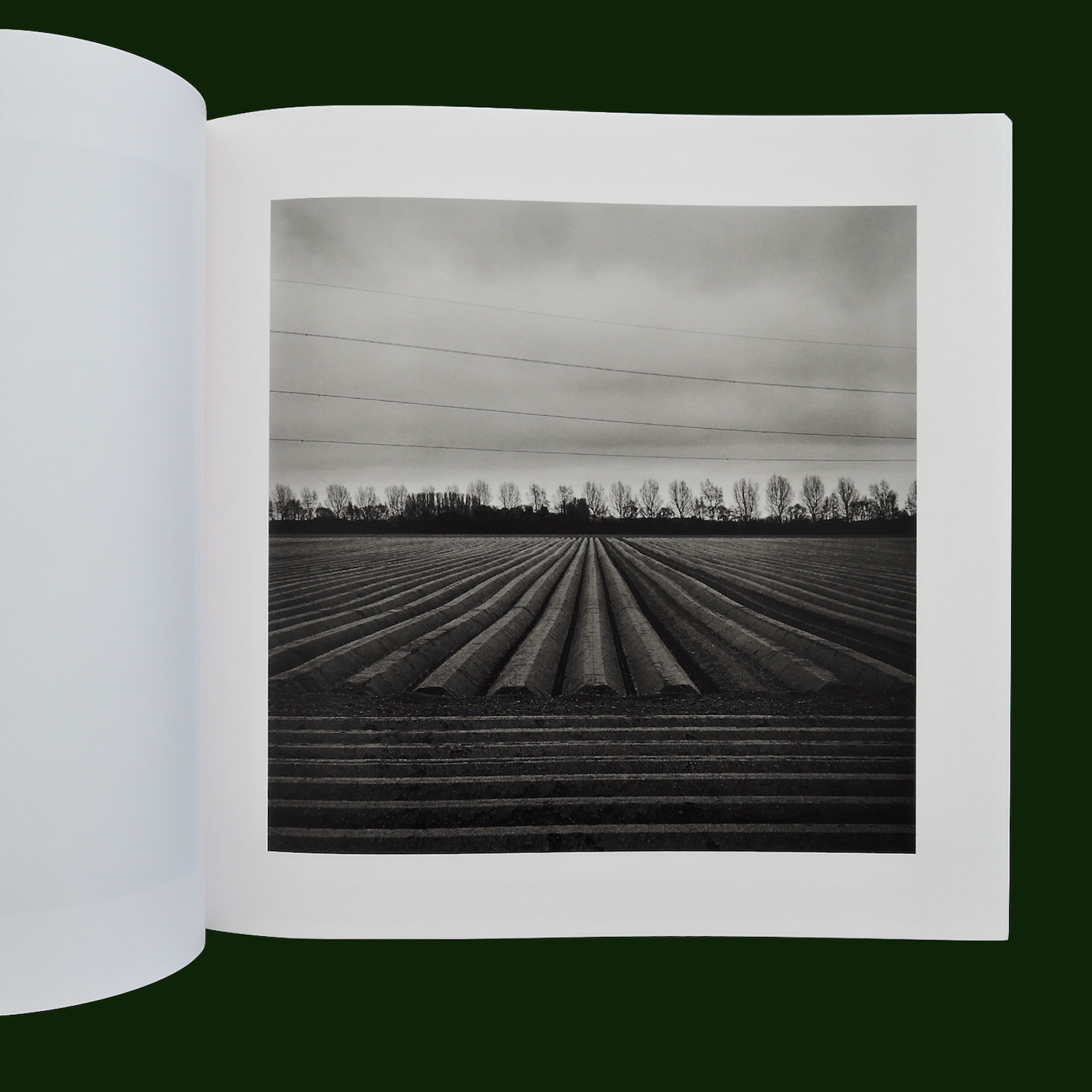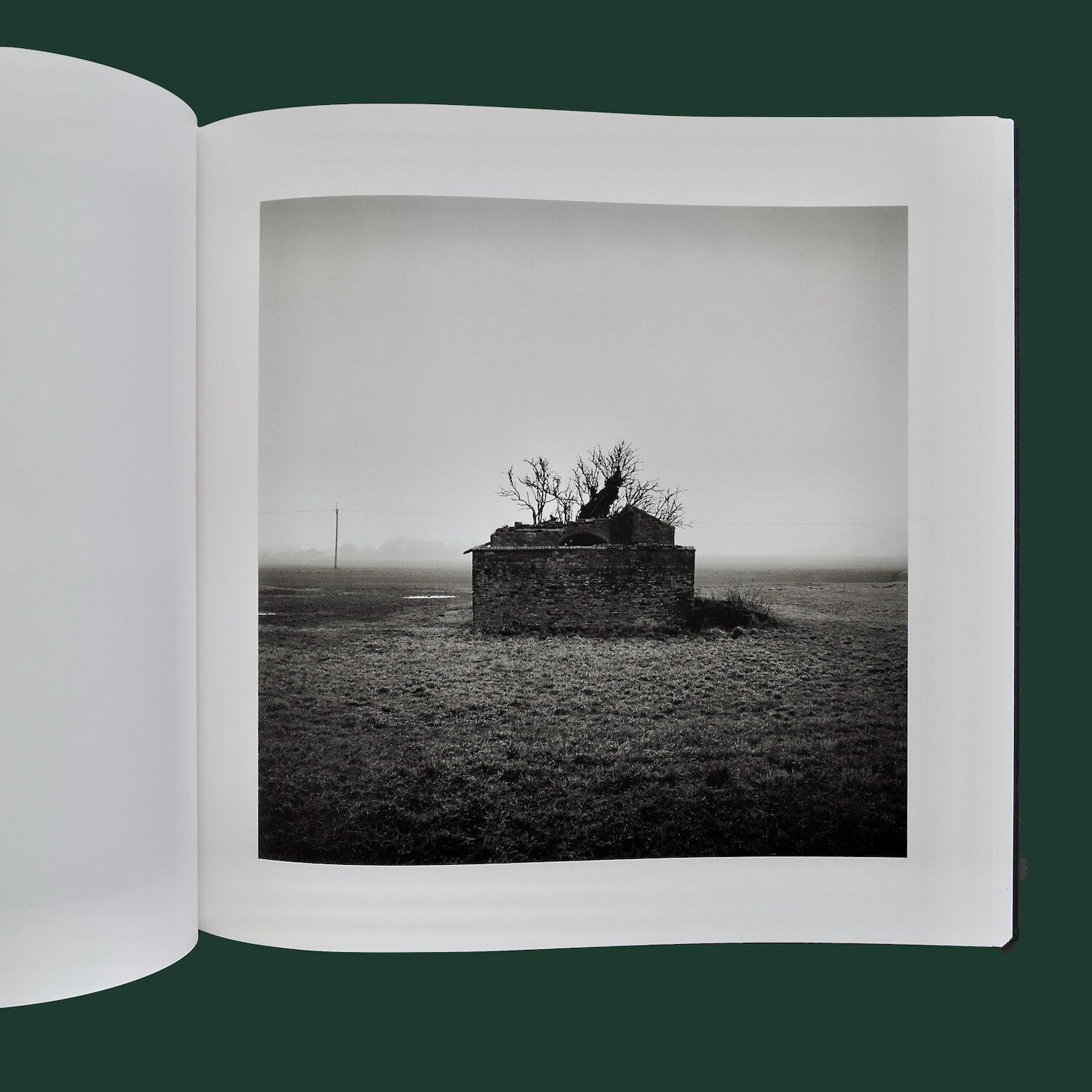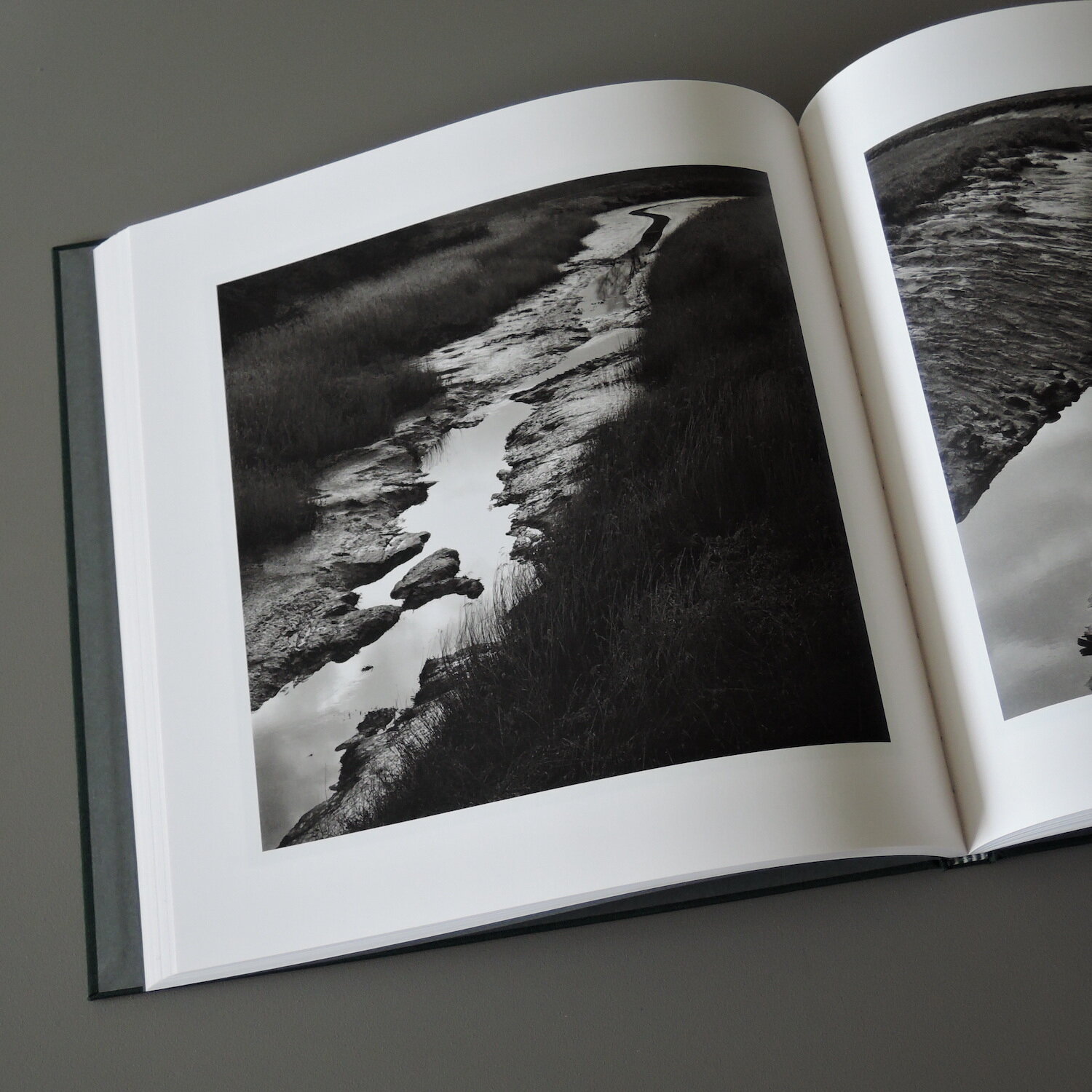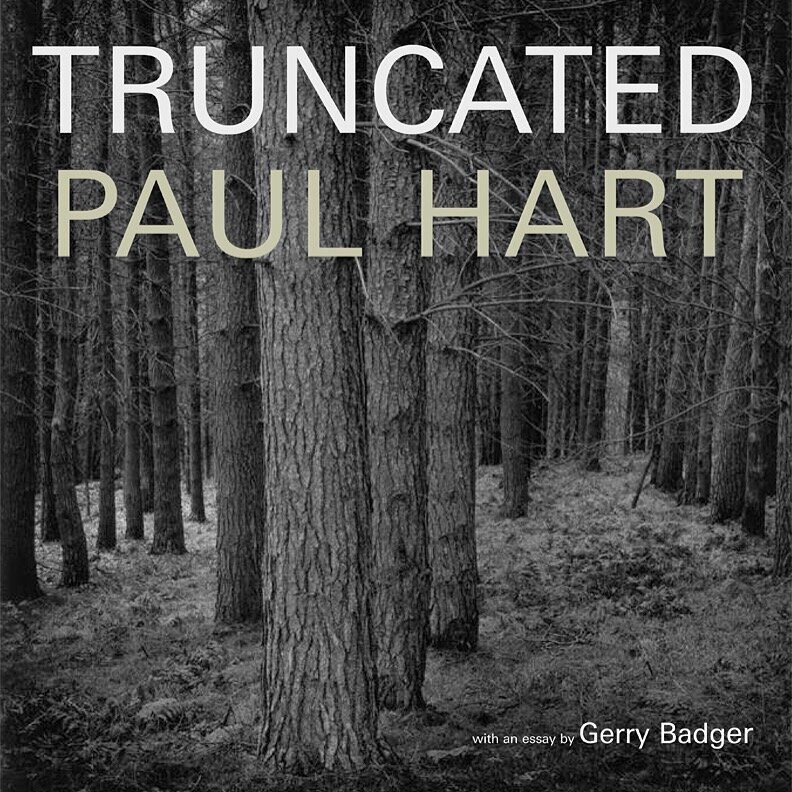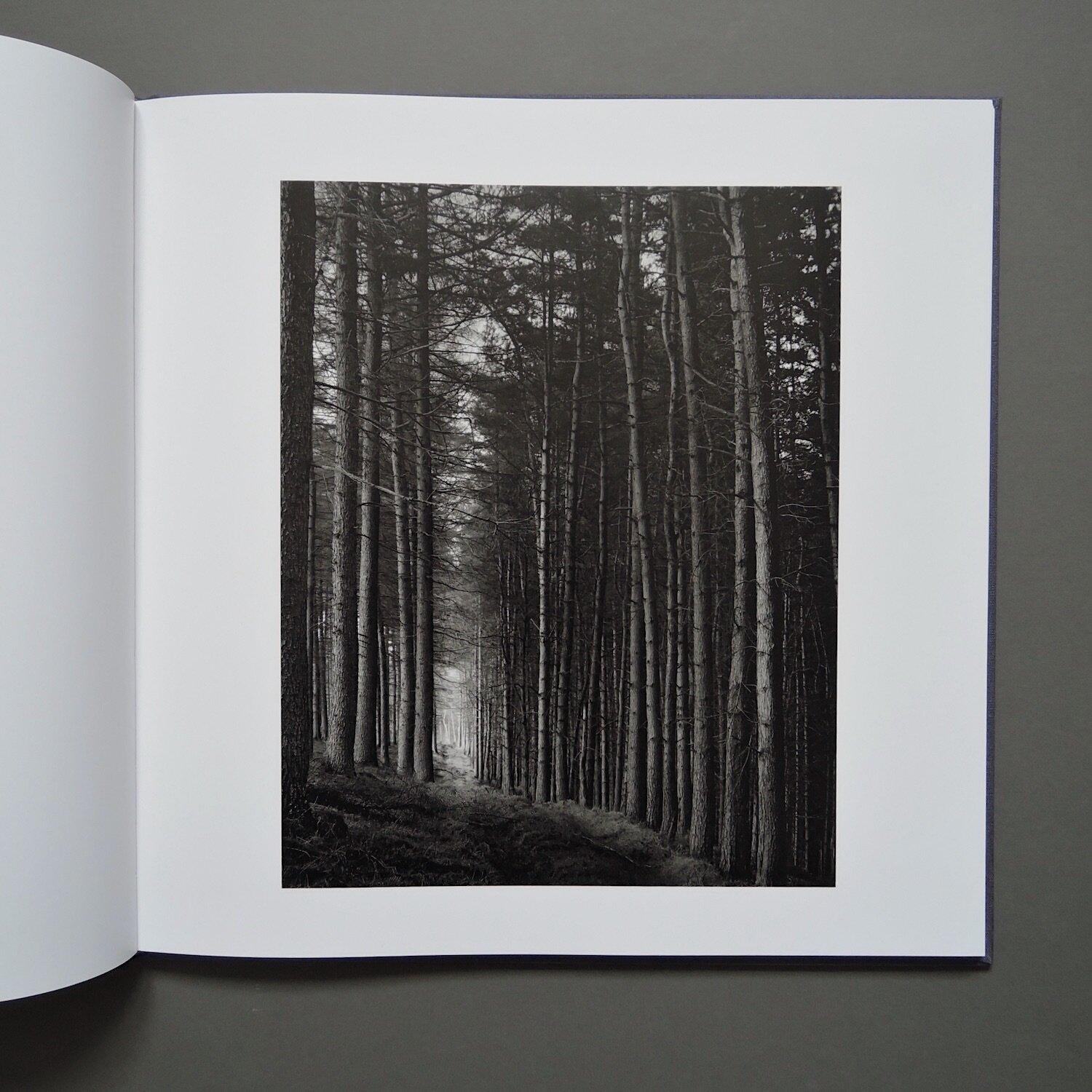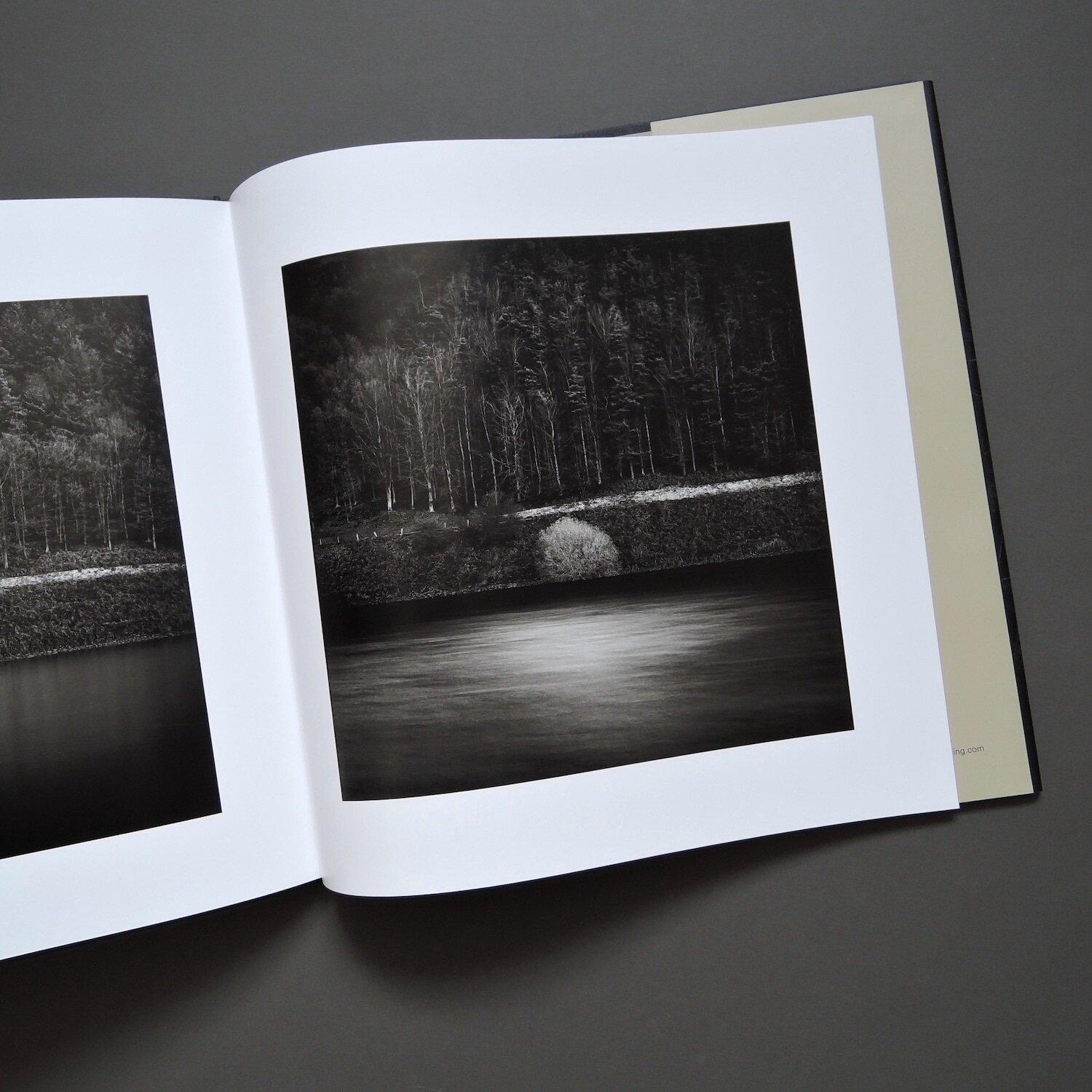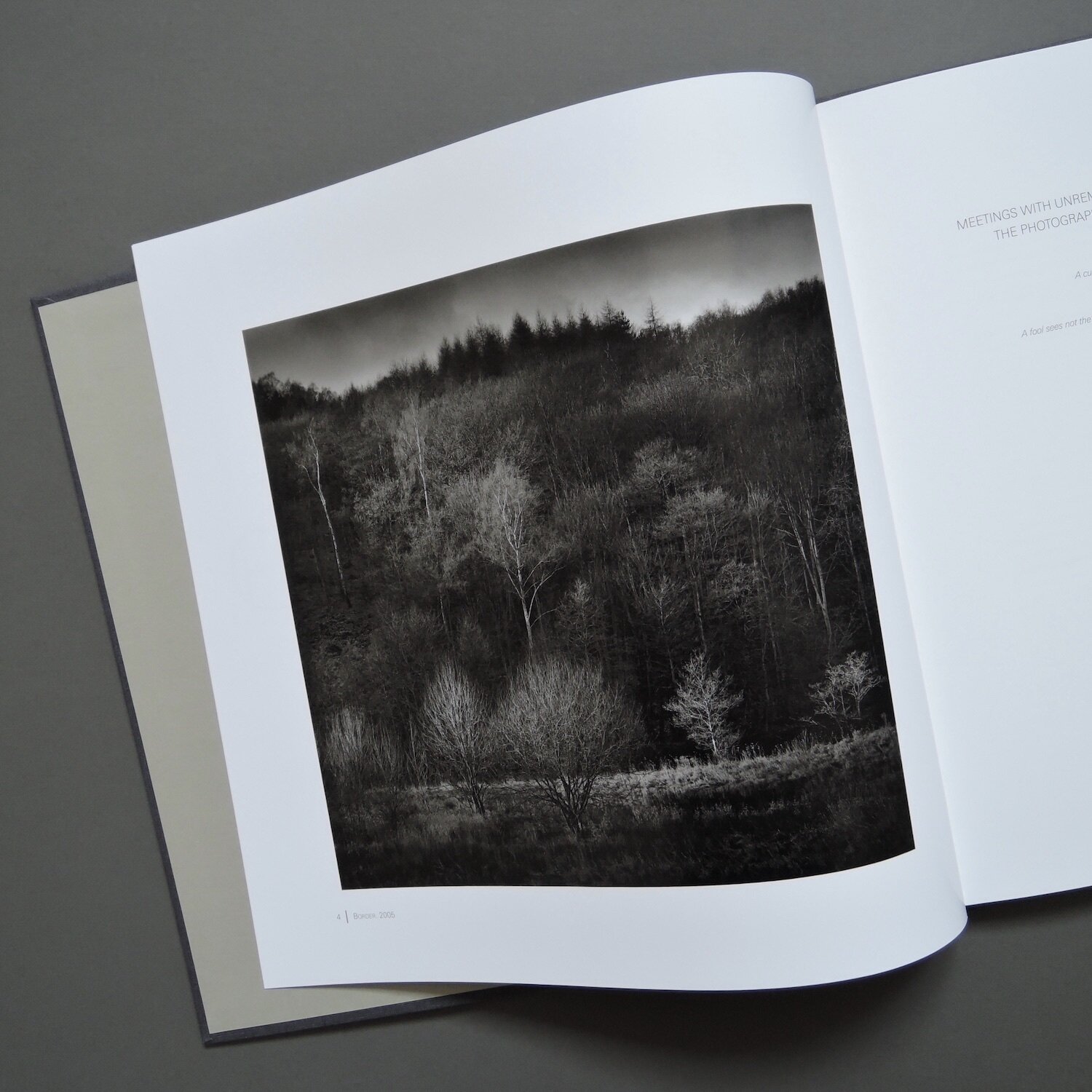FRAGILE
DEWI LEWIS PUBLISHING
Large format printed cloth covered hardback
295 x295 mm
Editions : 2024 (1st edition) May
Poem : Trees at Night by Helene Johnson (1906-1995)
ISBN : 978-1-916915-07-7
Paul Hart’s latest work FRAGILE (2020-24) is a personal reflection on nature made in the landscape close to his home in England. The aesthetic is rooted in the notion of a heightened awareness of the natural world, of both a physical engagement and spiritual connection to the land. Whilst becoming absorbed in this instinctual, visceral approach, Hart has become acutely aware of both the physical beauty and delicate vulnerability of these natural forms. Although concerns of the environment and sustainability are present throughout, FRAGILE departs from the central study of place usually associated with his work, to evoke a more abstract ethereal sensibility. In keeping with Hart’s longstanding practice to work in analogue, FRAGILE is made on medium format film cameras and printed by Hart as gelatin silver prints.
The publication was nominated for the Deutsche Börse Foundation Photography Prize 2025.
THE FENLAND TRILOGY
DEWI LEWIS PUBLISHING
Hart's Fenland Trilogy is published as stand alone monographs FARMED, DRAINED and RECLAIMED released over a five year period from2016 to 2020. The series has received considerable critical acclaim and won a number of notable awards. In 2018 Hart received the inaugural Wolf Suschitzky Photography Prize (Austria/UK) and in 2023 he was nominated for the Louis Roederer Photography Prize for Sustainability (France/UK).
Originally a region of low-lying marshland in the east of England, The Fens have been cleared and artificially drained over centuries to provide some of Britain’s most fertile agricultural land. It is now a landscape of agribusiness with monoculture at it’s core, defined by mechanisation and productivity which Paul Hart has photographed for over ten years. His narrative examines the complex interrelation between humanity and nature and raises important questions about human-altered topography and our occupation and stewardship of this land. People are depicted by the shaping of the land, with the constant dynamic of dependency and control ever present. By combining a documentary approach with a personal aesthetic, this environment is sensitively revealed as a strangely beautiful place.
FARMED
PART ONE | 2016
Large format cloth covered hardback with tip print
295 mm x 295mm
Editions : 2016 (1st ed.) | 2018 (2nd ed.)
Essay : Constructing Fate by Steven Collier Brown (English)
ISBN : 978-1-907893-97-1 Out of Print
“The landscapes in Paul Hart’s series, Farmed, are at once beautiful and beleaguered, full and empty, alive and dead. The disappearances between these conditions are the true subjects. One feels their presence in every photograph....Hart’s photographs raise important questions about possession, ownership, mobility, stewardship, history, memory, perspective - the list goes on. But none of these would matter much if these photographs were not, in their attention to the poetry of the place, earnest and moving ”
DRAINED
PART TWO | 2018
Large format cloth covered hardback with tip print
295 mm x 295mm
Editions : 2018 (1st ed) | 2020 (2nd ed)
Essay : Picturing the Polder by Francis Hodgson (English)
ISBN : 978-1-911306-37-5
“Paul Hart is a photographer interested in the slow harvesting of hidden truth from the ordinary places that most of us pass by. He works in an unfashionable idiom with slow cumbrous equipment (not just old-fashioned analogue photography, but medium format analogue photography, slower still) in an unfashionable place. He seeks to find the bits of the land that speak their stories, and to transmit their importance in views which, typically, the absolute lack of melodrama demands slow looking and brings slow revelation. Hart’s placid, formally peaceful landscape is pregnant with stories that lurk in the mud or the mist. His magic lies in soliciting from his viewers the same half-historical, half romantic reaction to ploughed fields and straight drainage ditches as he gets from them himself. ”
RECLAIMED
PART THREE | 2020
Are format cloth covered hardback with tip print
295 mm x 295mm
Editions : 2020 (1st edition)
ISBN : 978-1-911306-64-3
Essay : Paysage Dénaturé by Isabelle Bonnet (French & English translation)
“Hart’s landscapes create a dialogue between art and document, lyricism and storytelling, the sublime and the ordinary. Almost everywhere, rectilinear and regular shapes unfold, impeccably drawn furrows responding to rows of trees, industrial constructions and metal structures... No movement animates this nature morte, no bird awakens these low and heavy skies and endless horizons... Unlike the sort of landscape photography that long incarnated the collective and historical body of the nation, Hart’s images take on a universal value : the battered and exhausted Fens resonate like a subtle metaphor for what humanity engenders and inflicts on itself.”
TRUNCATED
DEWI LEWIS PUBLISHING
TRUNCATED (2005 - 2008) is an intensive portrayal of an ageing pine forest plantation in Derbyshire, England made over a three year period on repeated visits to the same forest. Hart identifies a landscape where nature finds shelter and protection from its own elemental chaos by exploring the natural spirituality of the place, which is largely unaffected by the modern world. The series was made on large and medium format film cameras and the narrative is further enhanced by Harts’ use of traditional darkroom printing techniques.
The series has won a number of international awards and the book, which is now long out of print, is highly sought after.
Large format cloth covered hardback with blind embossed title & dust jacket
295 mm x 295mm
Editions : 2009 ( 1st edition)
Essay : Meetings with Unremarkable Trees by Gerry Badger (English)
ISBN : 987-1-90457-69-9 Out of Print
“Paul Hart’s images of single trees function like portraits, highlighting character and nuanced individualities - with one important difference. Trees do not react like people when a camera is pointed at them, tree ‘portraits’ depend solely on the sensibility of the photographer.”


